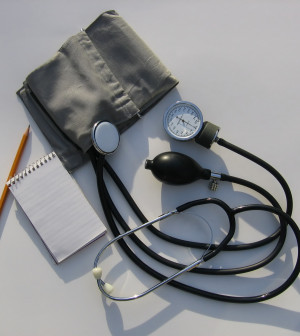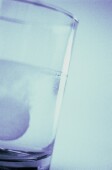- Recognizing the Signs of Hypothyroidism
- 10 Strategies to Overcome Insomnia
- Could Artificial Sweeteners Be Aging the Brain Faster?
- Techniques for Soothing Your Nervous System
- Does the Water in Your House Smell Funny? Here’s Why
- Can a Daily Dose of Apple Cider Vinegar Actually Aid Weight Loss?
- 6 Health Beverages That Can Actually Spike Your Blood Sugar
- Treatment Options for Social Anxiety Disorder
- Understanding the Connection Between Anxiety and Depression
- How Daily Prunes Can Influence Cholesterol and Inflammation
Fizzy Drugs May Pose a High-Salt Danger, Study Suggests


TUESDAY, Nov. 26The high salt content of fizzy medications like Alka-Seltzer could pose a threat to people with heart disease, according to a new study.
The researchers want consumers to be aware of how much salt certain over-the-counter drugs contain. In some cases, the salt content of a day’s worth of tablets exceeds American Heart Association guidelines for daily salt intake — and that’s without taking a single bite of food.
“There is a significant risk in taking these effervescent, dispersible and soluble medications over the long term,” said lead researcher Dr. Jacob George, a senior clinical lecturer and honorary consultant in clinical pharmacology at the University of Dundee, in Scotland.
Excessive salt intake is linked to high blood pressure, stroke and kidney disease. George said people with heart conditions or those who are at risk for cardiovascular disease should stay away from these fizzy medications.
Drug labels also should be required to include salt content just as food labels do, George said.
Fizzy medications are more common in the United Kingdom than in the United States. In Britain, many pain, headache and cold tablets come in this form, as do indigestion treatments and vitamin supplements, George said.
It’s the salt in these medications reacting with water that adds the fizz to the drugs.
Alka-Seltzer, an over-the-counter heartburn drug, is the most well-known medication in this category in the United States, said Ola Oyetayo, a pharmacist at Scott & White Memorial Hospital in Temple, Texas.
One Alka-Seltzer tablet contains 445 milligrams of salt, according to Bayer, the drug’s maker. By taking the maximum recommended dose — two tablets four times a day — you’ll consume 3,560 mg. That’s more than double the American Heart Association’s recommendation to limit salt intake to 1,500 milligrams of salt a day.
According to the AHA, if Americans limited salt intake to the recommended level, the nation would see a nearly 26 percent decrease in high blood pressure and savings of more than $26 billion in health care costs in just one year.
A high-salt diet may be the reason one in three Americans develop high blood pressure, according to the AHA.
Calls made to Bayer for comment on the study were not returned.
For the study, George’s team collected data on more than 1.2 million British patients. During an average of seven years of follow-up, more than 61,000 heart attacks, strokes or deaths occurred from heart disease among these patients.
The researchers found that patients taking at least two of these medications during the study period were at a 16 percent increased risk of a heart attack, stroke or death from heart disease compared with patients taking the salt-free versions of those same medications.
These findings remained unchanged even after taking into account factors such as weight, smoking, alcohol, history of chronic illnesses and use of some other medications, the researchers said.
More information
For more information on salt, visit the American Heart Association.
Source: HealthDay
Copyright © 2026 HealthDay. All rights reserved.










